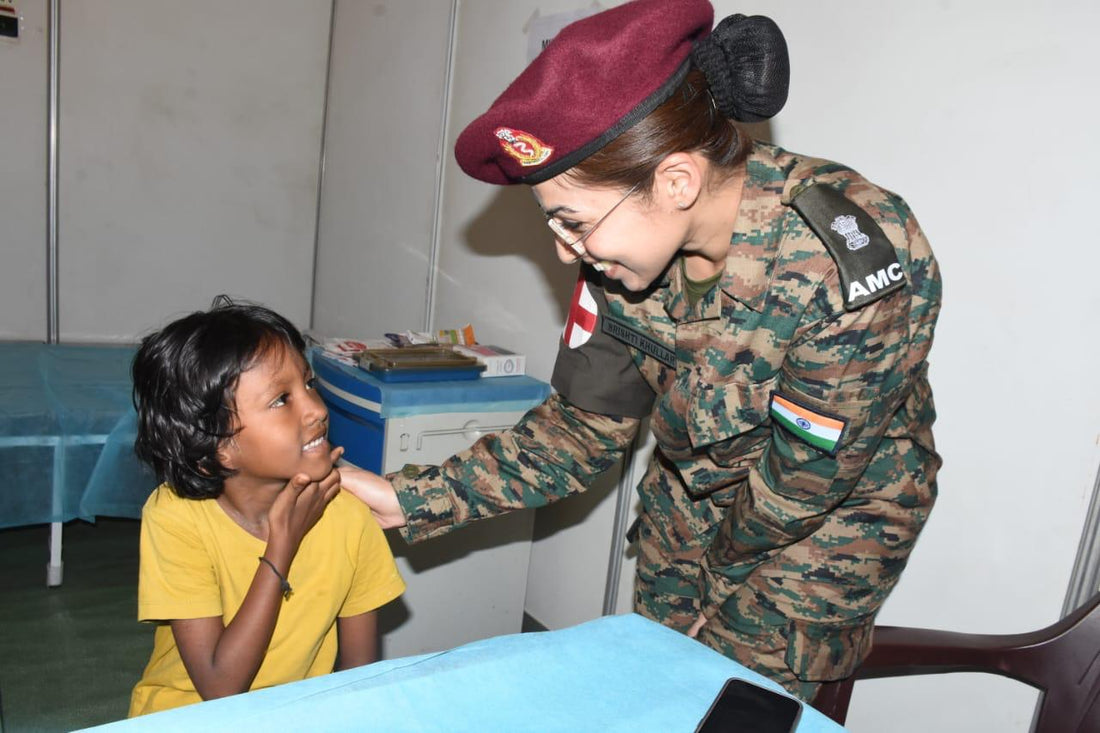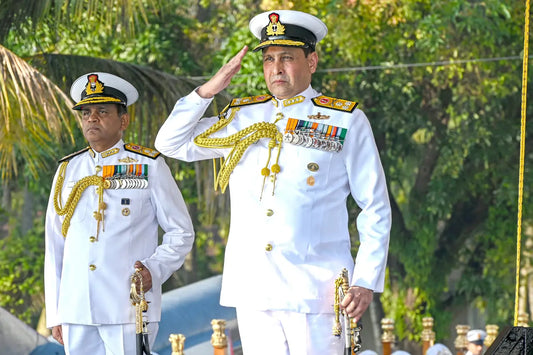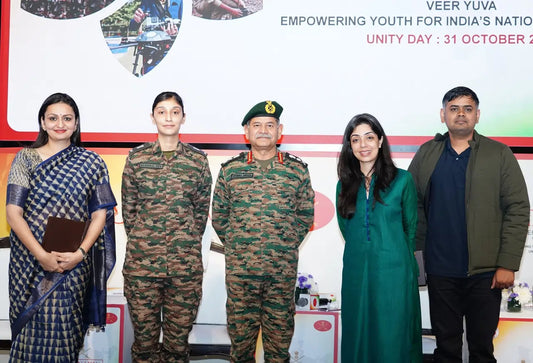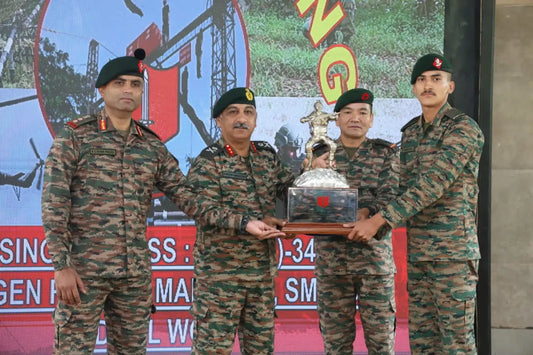Career Guide: Indian Army Medical Officer - Salary, Eligibility, and Education Explained

The role of a Medical Officer in the Indian Army is a unique blend of medical expertise, military discipline, and a commitment to serving the nation. These officers are fundamental to the healthcare of army personnel, ensuring the medical readiness and well-being of soldiers. This article explores the educational requirements, eligibility criteria, salary, benefits, career pathways, and other important aspects of becoming an Indian Army Medical Officer.
The structured medical service within the Indian Army originated during the British colonial era when military medical officers primarily catered to the British Indian Army's health needs. Over time, the medical corps has evolved significantly, focusing not only on treating injuries but also on preventive care, health education, and overall wellness. The Indian Army now maintains a highly professional medical system that provides comprehensive services to soldiers, their families, and veterans. The role of a Medical Officer has adapted over the years to accommodate changes in warfare, technology, and civilian healthcare standards, underscoring the growing importance of military medicine.
To become an Indian Army Medical Officer, candidates must meet certain educational standards, ensuring that only well-qualified individuals take on the critical role of providing medical care in challenging environments.
Candidates must possess an MBBS (Bachelor of Medicine, Bachelor of Surgery) or BDS (Bachelor of Dental Surgery) degree from a recognized institution. This qualification must be acknowledged by the National Medical Commission (NMC) or relevant state medical councils, affirming the quality and appropriateness of the education received.
A recognized degree ensures candidates have the fundamental medical knowledge and practical skills needed for their role, preventing misunderstandings in military medical requirements.
Admission to the Armed Forces Medical College (AFMC) requires passing the National Eligibility cum Entrance Test (NEET), which assesses candidates' proficiency and readiness for medical education, allowing only qualified students to proceed.
Post-graduation, candidates must register with the NMC or state medical councils, officially certifying them to practice medicine in India.
To qualify as an Indian Army Medical Officer, candidates must meet specific eligibility criteria, ensuring they are suited for the demanding yet rewarding environment of military service.
Only Indian citizens can apply for the position of Army Medical Officer, emphasizing the commitment to serving the nation in uniform.
The age criteria differ based on the mode of entry. For the Short Service Commission (SSC), candidates should be 21 to 35 years old for MBBS graduates and up to 45 years for those with postgraduate qualifications. Direct Entry (AFMC) candidates must be between 17 to 22 years old. Prospective candidates must understand these age limits to plan their applications accordingly.
Candidates must undergo a comprehensive medical examination to ensure they meet the physical fitness standards set by the Indian Army. High fitness levels are crucial as Medical Officers must maintain operational readiness and may participate in medical aid in combat or harsh field conditions.
The compensation for Indian Army Medical Officers is highly attractive, reflecting the job's rigorous demands and the skilled expertise required.
The basic salary for an Army Medical Officer is approximately ₹61,300 per month, representing the base pay and excluding additional benefits and allowances.
Medical Officers also receive a Military Service Pay of ₹15,500 per month, acknowledging their unique role and operational conditions.
A range of allowances complements the salary, including House Rent Allowance for housing support, Transport Allowance between ₹3,600 to ₹7,200 per month depending on location, Dress Allowance for uniform maintenance, and Dearness Allowance adjusted according to government regulations.
Considering the basic pay, military service pay, and allowances, the total annual compensation for an Indian Army Medical Officer ranges from approximately ₹8 lakh to ₹16.5 lakh, reflecting the competitive salary needed to attract and retain qualified medical professionals.
Additionally, Army Medical Officers and their dependents enjoy free medical facilities, providing significant benefits. High-quality healthcare is crucial in military service, alleviating the burden of healthcare costs for officers and their families.
The career progression for Indian Army Medical Officers offers pathways for professional development, specialization, and leadership roles.
Candidates admitted through the AFMC are awarded a Permanent Commission after completing their MBBS program, ensuring a long-term commitment to service and allowing officers to rise through the ranks and assume leadership responsibilities.
MBBS or BDS graduates can opt for a Short Service Commission with an initial ten-year commitment, extendable by four more years. Officers may transition to a Permanent Commission after two years of service, provided this occurs before reaching 9.5 years of service.
The Short Service Commission offers flexibility in service duration and the opportunity to evaluate a career in military medicine before making a longer-term commitment.
Medical Officers typically start as Captains in the Indian Army, with the potential to rise to higher ranks as their service continues.
Promotions follow a structured path, with Permanent Commissioners enjoying opportunities for rapid advancement leading to significant positions within the medical corps. Although career growth for Short Service Commissioners is somewhat limited compared to Permanent Officers, it still provides valuable military experience.
Significant data underscores the importance of Medical Officers in the Indian Army, with recent reports indicating that the medical services provide healthcare to about 14 lakh individuals, including active personnel, veterans, and their families.
The Indian Army has established numerous hospitals and primary healthcare units nationwide and in operational areas, illustrating the scale of medical services provided.
When comparing Indian Army Medical Officers with civilian healthcare professionals, several differences emerge. Military roles offer unparalleled job security and benefits, making them highly desirable, and while military healthcare is rigorous, it provides unique experiences that civilian settings may not offer. Although salaries in private healthcare can be high, the steady progression and allowances in the Army make the overall compensation package compelling.
Being an Indian Army Medical Officer is fulfilling but comes with challenges such as operational stress from handling medical emergencies in combat zones and difficulties in maintaining work-life balance due to the demanding nature of military service.
To address these challenges, robust mental health support and wellness programs could be established to help medical staff manage pressures. Additionally, providing flexible assignment options that consider personal circumstances and wellness could improve work-life balance.
The field of military medicine is evolving, with trends expected to impact Indian Army Medical Officers in the future. Technological advancements like telemedicine and advanced diagnostic tools are likely to enhance medical services, ensuring timely treatment. With a growing focus on mental health, the Indian Army is expected to emphasize mental health services for its personnel, and increased training opportunities will further enhance the capabilities of Medical Officers.
Becoming an Indian Army Medical Officer is a prestigious career choice that involves a profound commitment to serving the country while contributing significantly to the health and well-being of soldiers and their families. With competitive salaries, benefits, and varied career pathways, this role combines medical practice with military discipline, fostering an environment where professionals can thrive both in service and personal growth. For those considering this path, understanding qualifications, responsibilities, and the rewards of serving as a Medical Officer in the Indian Army is crucial. As the military medical landscape continues to evolve, aspiring candidates can look forward to an enriching career filled with challenges, responsibilities, and opportunities to serve and protect.



















